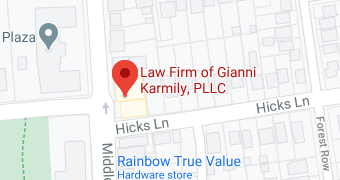Everyone knows that if you steal someone else’s property, it’s a crime. However, in New York, if you fail to return someone’s lost property, you might also be charged with a crime, and if that happens, you will need the advice and services of a Nassau County criminal defense attorney.
What does state law in New York say about lost property and the failure to return it? What criminal charges are available to prosecutors in such circumstances, and what penalties may be imposed on convicted offenders?
If you keep reading, you will learn the answers to these questions, and you will also learn more about your rights if you’re charged with petit larceny or grand larceny – or with the possession of stolen property – in the State of New York.
How Are Theft Crimes Handled in New York?
Under New York law, theft is called larceny. Larceny is defined as theft committed with the intent to deprive the owner of the property, temporarily or permanently, and to exercise control over the property.
In the State of New York, petty or “petit” larceny is the theft of any property worth $1,000 or less. Petit larceny is a Class A misdemeanor, and a conviction may be penalized with a one-year jail term and a $1,000 fine.
What Are the Penalties for a Grand Larceny Conviction?
Grand larceny is classified as a felony in this state, and the penalties for a grand larceny conviction depend on the value of the property that was stolen. For property worth:
1. over $1,000: a conviction is punishable by up to four years in prison
2. over $3,000: a conviction is punishable by up to seven years in prison
3. over $50,000: a conviction is punishable by up to fifteen years in prison
4. over $1 million: a conviction is punishable by up to twenty-five years in prison
What Does the Law Say About Returning Lost Property?
State law addresses how you can face a larceny charge if you come into possession of lost property and fail to return it. Here is what the law says:
“A person acquires lost property when he exercises control over property of another which he knows to have been lost or mislaid or to have been delivered under a mistake as to the identity of the recipient or the nature or amount of the property, without taking reasonable measures to return such property to the owner.”
The law seems forthright and easy enough to understand, but the real-life practical application of the law can be complicated and may raise a number of questions.
What Can Happen if a “Ransom” is Demanded for Lost Property?
For example, what if you find a wallet or a purse with cash in it – and a phone number – but you keep the cash and ignore the phone number? Or what if you call the number but demand a reward – or a ransom – to return it?
In 2006, a New York City court found Anthony Graves guilty of criminal possession of stolen property in a case regarding a lost cell phone. Graves apparently found the lost phone, answered it when the owner called the number, and demanded money for the phone’s return.
The owner of the phone agreed, but the owner also called the police, and when the owner met with Graves to pay the ransom, Graves was arrested.
In the words of the court, “Since the finder of lost property who learns the identity of the rightful owner has an obligation to take reasonable measures to return the property, conditioning the return upon the payment of what amounts to a ransom constitutes a larceny.”
What Are the Penalties for the Possession of Stolen Property?
The court also indicated that Graves could have been charged with petit larceny. The penalties for someone who is convicted for the criminal possession of stolen property in New York are the same as the penalties for petit larceny and grand larceny convictions.
The “extra-legal” penalties for a larceny conviction or a possession of stolen property conviction must also be considered. Employers may not choose to hire or to retain someone who has been convicted of a crime that involves dishonesty.
If you hold a professional license in New York, a conviction may trigger disciplinary action by your professional licensing board. If you are an immigrant, a conviction that comes to the attention of immigration authorities could lead to a deportation hearing.
What Should You Do If You Find Someone’s Lost Property?
You have nothing to fear if you discover lost property and make reasonable efforts to return it promptly, but if you are unable to locate the owner, you should contact the police. You must avoid the temptation to keep someone else’s property or to make money by returning it.
As the penalties indicate, the possession of lost or stolen property is a serious crime in New York. If you are charged with possessing stolen property on Long Island or anywhere in the New York City area, you will need the advice and services of a Long Island criminal defense lawyer.
After reviewing the charge against you, your defense attorney can explain your legal options and begin to develop the best possible defense strategy on your behalf. If the case against you is weak, in some cases, your lawyer may be able to reduce the charge or even dismiss it.
What Should You Do If You Are Arrested for Possession of Stolen Property in New York?
If you are arrested and charged with the criminal possession of stolen property, exercise your constitutional rights. You have the right to remain silent, and you also have the right to have your attorney present during any interrogation.
If the police have a search warrant for the property in question, or if the police claim to have reasonable cause to conduct an unwarranted search of your home, vehicle, or place of business, do not resist the police in any way, but do not give your verbal consent to a search.
Finally, do not try to act as your own attorney. The law is complicated, and anything you say could be used against you. A single mistake could lead to your conviction.
Instead, contact a New York defense lawyer as soon as possible if you are charged with larceny or with the possession of stolen property. The right Nassau County criminal defense attorney will fight for the justice you need and will bring your case to its best possible conclusion.
To schedule a confidential case evaluation with the Law Firm of Gianni Karmily, PLLC, call our Great Neck office at (516) 630-3405 or our Hempstead office at (516) 614-4228.













